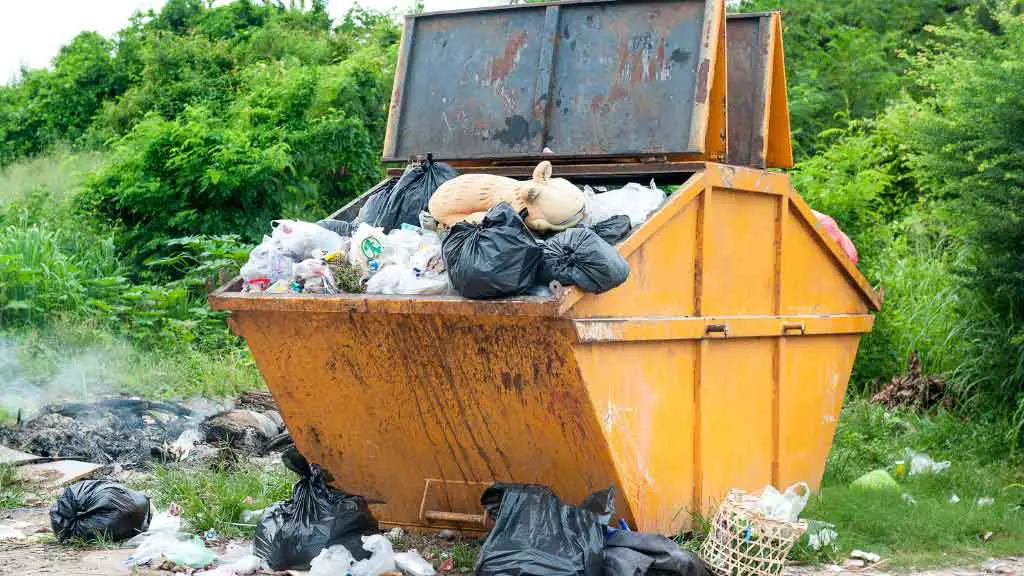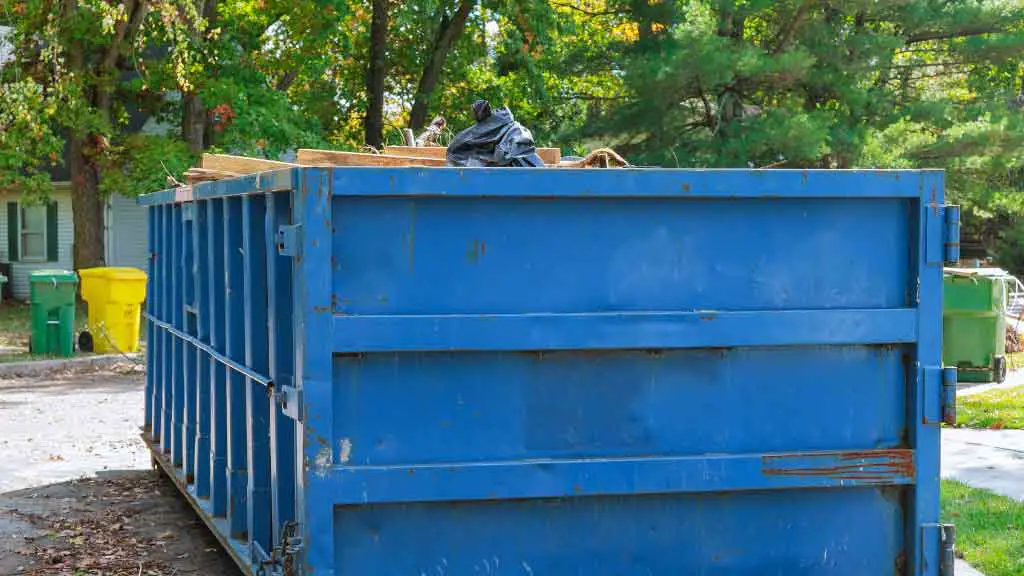Hey there, friend. Let’s dive right into this topic because it’s important, and honestly, it’s something a lot of people are curious about. If you’ve ever wondered, “is dumpster diving illegal in Massachusetts?” you’re not alone. Many folks across the state are asking the same question. Dumpster diving might sound like a quirky hobby or an extreme way to save money, but legally, it’s a whole different ballgame. So, buckle up and let’s break it down together. Stick around because there’s a lot more to this than meets the eye, and trust me, it’s gonna be interesting.
You might be thinking, “Why does it even matter if it’s legal or not?” Well, here’s the deal: dumpster diving isn’t just about finding free stuff. It’s about understanding property rights, trespassing laws, and how municipalities view discarded items. In Massachusetts, the laws surrounding dumpster diving are a bit tricky, and it’s essential to know what you’re getting into before you start sifting through someone else’s trash. Let’s clear the air on this one.
Now, before we dive deeper (pun intended), let’s talk about why this matters. Whether you’re looking to score some cool finds or just trying to understand your legal rights, knowing the ins and outs of dumpster diving in Massachusetts can save you a lot of trouble. So, grab a snack, get comfy, and let’s explore everything you need to know about this controversial practice. Ready? Let’s go!
Read also:Knotless Braids Near Me The Ultimate Guide To Finding The Best Styles And Salons
What Exactly is Dumpster Diving?
First things first, let’s define what dumpster diving actually is. In simple terms, dumpster diving is the act of searching through trash or discarded items for something useful. Some people do it for fun, others for necessity, and some just enjoy the thrill of the hunt. But here’s the catch: not all trash is fair game. In Massachusetts, the legality of dumpster diving depends on several factors, including where the trash is located and who owns the property.
Dumping diving isn’t just about rummaging through bins. It’s about understanding the legal boundaries and respecting private property. For instance, if a dumpster is on private property and clearly marked as off-limits, diving into it could land you in hot water. On the flip side, if the trash is on public property or clearly accessible, you might be in the clear. However, it’s always best to err on the side of caution and do your research first.
Is Dumpster Diving Illegal in Massachusetts?
This is the million-dollar question, right? The short answer is: it depends. Dumpster diving itself isn’t explicitly illegal in Massachusetts, but there are laws that can make it problematic. For example, trespassing laws can come into play if you’re diving on private property without permission. Additionally, some cities and towns have specific ordinances that regulate waste disposal and access to trash.
Here’s the thing: just because something is in a dumpster doesn’t mean it’s free for the taking. Property owners still have rights, even when it comes to their trash. If you’re caught diving without permission, you could face charges like trespassing, theft, or even criminal mischief. So, while dumpster diving isn’t outright illegal, there are plenty of legal gray areas to watch out for.
Understanding Trespassing Laws in Massachusetts
Trespassing is one of the biggest concerns when it comes to dumpster diving. In Massachusetts, trespassing is defined as entering or remaining on someone else’s property without permission. If a dumpster is located on private property and clearly marked with signs like “No Trespassing” or “Private Property,” diving into it could be considered trespassing.
Here’s a tip: if you’re unsure whether a dumpster is on private or public property, it’s always best to ask for permission first. Many businesses and property owners are open to letting people take items from their trash, especially if it means reducing waste. Building a rapport with local businesses can go a long way in avoiding legal trouble.
Read also:Meredith Adkins The Rising Star You Need To Know
Legal Precedents and Case Studies
To give you a clearer picture, let’s look at some legal precedents and case studies related to dumpster diving in Massachusetts. One notable case involved a person who was charged with trespassing after diving into a dumpster located on private property. The court ruled that since the dumpster was behind a fence and marked with “No Trespassing” signs, the diver had no right to access it.
Another interesting case involved a group of individuals who were diving into dumpsters at a local grocery store. The store had no signs prohibiting diving, but the group was still approached by security and asked to leave. While they weren’t charged with trespassing, the incident highlights the importance of understanding local laws and respecting property boundaries.
Key Takeaways from Legal Cases
- Always check for signs indicating private property or restricted access.
- Be aware of local ordinances that may regulate waste disposal and access to trash.
- If in doubt, ask for permission before diving into any dumpster.
Massachusetts Waste Management Laws
Massachusetts has some of the strictest waste management laws in the country, and these laws can impact dumpster diving. The state has a zero-waste initiative aimed at reducing landfill waste and promoting recycling. While this is great for the environment, it also means that accessing certain types of waste may be more restricted than in other states.
For example, many cities and towns in Massachusetts have specific rules about how trash is collected and disposed of. Some areas require businesses to contract with licensed waste haulers, which can make it harder for divers to access certain dumpsters. Additionally, some municipalities have ordinances that prohibit the removal of items from public trash bins.
How Waste Management Laws Affect Dumpster Diving
Here’s how waste management laws in Massachusetts can impact dumpster diving:
- Businesses may contract with waste haulers, making it harder to access dumpsters.
- Some municipalities have ordinances that prohibit removing items from public trash bins.
- Recycling laws may limit access to certain types of waste, such as electronics or hazardous materials.
Best Practices for Dumpster Diving in Massachusetts
If you’re determined to give dumpster diving a try in Massachusetts, there are some best practices you should follow to stay on the right side of the law. First and foremost, always respect private property and look for signs indicating restricted access. If a dumpster is on public property or clearly accessible, you’re likely in the clear, but it’s always a good idea to double-check local ordinances.
Another tip is to build relationships with local businesses. Many businesses are happy to let people take items from their trash, especially if it means reducing waste. Some even set aside certain items for divers, like unsold food or reusable materials. By fostering positive relationships, you can avoid legal trouble and score some great finds at the same time.
Top Tips for Safe Dumpster Diving
- Always wear gloves and protective clothing to avoid injury or exposure to hazardous materials.
- Be mindful of your surroundings and watch out for sharp objects or dangerous waste.
- Respect the property and leave the area cleaner than you found it.
Common Misconceptions About Dumpster Diving
There are a lot of misconceptions about dumpster diving, especially when it comes to legality. One common myth is that all trash is fair game once it’s discarded. While it’s true that some items may be considered abandoned property, this isn’t always the case. Property owners still have rights, even when it comes to their trash, and accessing it without permission can lead to legal trouble.
Another misconception is that dumpster diving is only for people who are desperate or in need. While some divers do it out of necessity, many others do it for fun or to reduce waste. It’s a diverse community with a wide range of motivations, and it’s important to respect everyone’s reasons for diving.
Busting Myths About Dumpster Diving
- Not all trash is fair game once it’s discarded.
- Dumpster diving isn’t just for people in need; many do it for fun or environmental reasons.
- Respecting property rights is key to avoiding legal issues.
Environmental Benefits of Dumpster Diving
One of the most compelling reasons to consider dumpster diving is its potential environmental benefits. By rescuing usable items from the trash, divers can help reduce waste and promote sustainability. In Massachusetts, where waste management is a top priority, this can make a big difference. Many divers focus on finding items that can be reused or recycled, such as food, clothing, and household goods.
However, it’s important to dive responsibly and avoid contributing to the problem. Always wear protective gear, dispose of hazardous waste properly, and leave the area cleaner than you found it. By doing so, you can help promote a culture of sustainability and reduce the environmental impact of waste.
Conclusion: Is Dumpster Diving Worth It?
So, is dumpster diving illegal in Massachusetts? The answer, as we’ve seen, is a bit complicated. While dumpster diving itself isn’t explicitly illegal, there are plenty of legal gray areas to consider. Trespassing laws, waste management regulations, and local ordinances can all impact your ability to dive safely and legally.
That said, with the right approach, dumpster diving can be a fun and rewarding activity. By respecting private property, understanding local laws, and building relationships with local businesses, you can avoid legal trouble and score some great finds. Plus, you’ll be doing your part to reduce waste and promote sustainability, which is always a good thing.
So, what are you waiting for? If you’re ready to take the plunge (pun intended), remember to dive responsibly and respect the rules. And don’t forget to share your experiences with others—after all, the diving community is all about sharing knowledge and tips. Happy diving!
Table of Contents
- What Exactly is Dumpster Diving?
- Is Dumpster Diving Illegal in Massachusetts?
- Understanding Trespassing Laws in Massachusetts
- Legal Precedents and Case Studies
- Massachusetts Waste Management Laws
- Best Practices for Dumpster Diving in Massachusetts
- Common Misconceptions About Dumpster Diving
- Environmental Benefits of Dumpster Diving
- Conclusion: Is Dumpster Diving Worth It?


